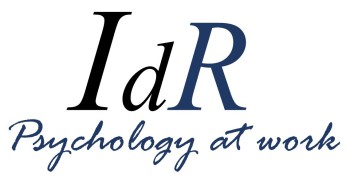Our history
Exploring business myth
IDR was established at the University of Exeter in 2003 to explore and develop business design, change management and leadership. We found it amazing that while technology had changed enormously, business leadership had changed hardly at all. For example, the concepts underlying today's new business leadership are clearly explained in FW Taylor’s 1911 book The Principles of Scientific Management. The first 'clean desk' designed for purpose was developed by Steelcase in 1915. The open plan office was widely employed when Queen Victoria was hale and hearty.
Improving best practice
IDR's evidence highlighted a new psychological, identity centred approach to improving organizational effectiveness. Our approach - drawn from impartial, published research - is emphatic and points to positive and consistent increases in key organizational variables. Productivity, engagement, well-being, creativity and even effective intelligence can all be significantly increased, sometimes by tens of percent. This is supported by other published work and there are no scientific contra-indications The inescapable conclusion is that businesses here and around the globe are missing out on millions!
We can almost certainly help your organization to improve. It is very likely that significant, measurable improvements in happiness, satisfaction and output can be achieved. Please make contact. The process is enjoyable, largely painless and - in every way - rewarding.
The way forward
Today, as an entirely commercial business, we still our mix of business acumen and academic rigour. Our aim is the same too, to help organizations thrive.
Our own peer reviewed, published science – and that of other global organizational scientists has uncovered robust, powerful and consistent evidence. Some of which can be found on this site, it highlights:
1: What makes for a good, bad or indifferent leader
2: How environmental design affects every key business variable and by how much
3: How key personnel can be coached for good or ill
4: How the formation of identities within workgroups -- and how those workgroups subsequently identify with the business -- can make or break an organization
5: How scientific assessment and development can improve decision making across recruitment and promotion by hundreds of per cent
Reading
Brown, R., Eller, A., Leeds, S.,& Stace, K. (2006). Intergroup contact and intergroup attitudes: a longitudinal study. European Journal of Social Psychology, 37, 692-703.


